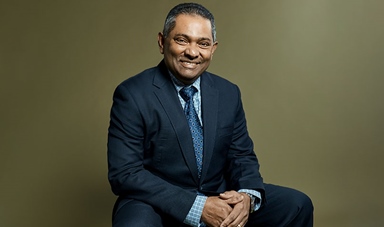Loading component...
At a glance
- Joined Hallmark Cards as CFO in October 2018.
- Formerly CFO at fashion brand KOOKAÏ and Arnott’s Snack Foods.
- CFO’s team: more than 250 across finance, IT, supply chain and merchandising.
My role: getting close to the business
My role at Hallmark is wider than being CFO. It is more of a chief operations officer, because in addition to the finance team, I also manage the IT, supply chain, demand planning and field merchandising functions, which encompass more than 250 people across the organisation in Australia and New Zealand.
I also lead a number of key strategic projects designed to produce a significant transformation of Hallmark’s operating model in Australia and New Zealand. These are business-critical initiatives that we believe will future-proof our business in what will be extremely challenging trading conditions over the next few years.
As a CFO, having an expanded remit has been vital in being able to produce a synergistic approach to financial and strategic controls over the bigger expenditure items in the business, such as IT, supply chain and, in the case of Hallmark, our field merchandise workforce.
Aside from being able to embed consistent financial and business planning disciplines across the business, we are achieving significant value through authentic business partnering practices, which not only produce important commercial benefits, but are just as vital in helping create tremendous cultural harmony between the business functions.
There is no doubt that technology is changing the finance function and helping CFOs perform a broader role. Being able to configure our systems and automate business controls is allowing CFOs to create new value as business partners and advisers.
Game changers: finding new revenue streams
I had some of the best learning experiences in my career during my five years at Kellogg’s as the director of finance and IT.
I always had the ambition of being a finance director of a Fortune 500 company here in Australia, and I was able to achieve that in this role.
This was my first executive leadership role, and it was a real challenge. At that time we were in a category with declining revenue, and our US parent was demanding annual EBIT [earnings before interest and tax] growth well above industry standards.
I quickly learned that there was no one simple answer to this challenge. We designed a solution that incorporated developing new sources of revenue through product innovation, we improved our cost structures, we became more closely aligned and engaged with consumer needs, and invested in acquisitions.
These were invaluable experiences for me, and I was very fortunate to have had the opportunity to transfer these learnings into my next key role as group financial controller at Bunnings. During the nine years that I was with Bunnings, the leadership team worked tirelessly to enhance the company’s vision and strengthen its businesses foundations, while creating a culture of highly successful internal business partnering.
At the core of Bunnings’ DNA are category diversification, product innovation, acquisitions, channel and store growth, internal business partnering, systems improvements, digital commerce and, most importantly, new ways of customer engagement.
My challenges: re-engineering the business
Hallmark operates in a complex product category with minimal growth, and this presents us with a number of challenges and opportunities.
We distribute about 4500 different SKUs [stock keeping units] to 3000 retail outlets and provide in-store merchandise services, so that is a major supply chain operation across both national retailers and independent stores.
Our challenge now is to work on initiatives that will give us the most cost-effective and efficient model, which will result in a best-in-class supply chain for our category.
We import most of our products from China, and we operate a dual distribution model; that is, our everyday products are distributed from Australia, and our seasonal products go to stores directly from China. This chain of activities has many areas that could be improved and made more efficient, which is what I will be focusing on over the coming months.
We currently operate a wholesale model that sells to the customer, who in turn retails to the consumer. We want to ensure that every part of this interaction is seamless, which will create value throughout the supply chain.
CPA Australia Resource:
Lessons learned and best advice
Very early on, I learned that to become a successful business partner, you need to understand how the entire business operation works and why it is critical to proactively build effective relationships across the business. Understand the detail. You can’t take short cuts on technical accounting knowledge if you want to help your business grow. Don’t compromise on getting the basics right, because they will serve you well.
Acquiring new experiences in quality organisations with different operating environments will be invaluable. This will equip you with the skills and knowledge you need to lead best practice. As a leader of best practice, you will always get a seat and, more importantly, a say at the executive table.
Successful careers often require massive personal investments and the occasional sacrifice. It is easy for ambitious professionals to allow work to consume their lives, but it is important to try to maintain perspective. While work is a big part of your life, it is not the only part. Remember that it is up to you to own your work-life balance.
A key requirement of being a strong leader of high-performing teams is maintaining a good understanding of your team and being genuinely interested in their welfare and development, as any challenges they face outside of work will affect how they perform.

